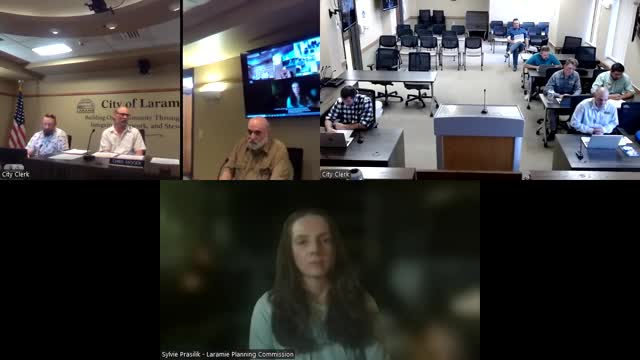City Council Faces Backlash Over Controversial Water Fee Plans
August 02, 2024 | Laramie City Planning Commission, Laramie City, Albany County, Wyoming
This article was created by AI summarizing key points discussed. AI makes mistakes, so for full details and context, please refer to the video of the full meeting. Please report any errors so we can fix them. Report an error »

During a recent government meeting, officials discussed potential changes to water billing structures, revealing significant concerns about the financial viability and public acceptance of proposed plans. A group of five representatives attended a meeting where three different scenarios for charging water users were presented, all of which were deemed potentially unfair to various segments of the population.
One representative suggested that a flat rate fee for all residential water users would be the most equitable approach, while emphasizing the necessity of securing $5 million in seed funding to kickstart any major projects. Without this initial investment, they warned that the proposed increases in water bills—estimated to range from $6 to $11—would not generate sufficient revenue for substantial improvements, potentially leading to prohibitive costs for residents.
Concerns were raised about the public's reaction to higher fees, with one official predicting that costs exceeding $12 could provoke significant backlash, reminiscent of past protests. The discussion highlighted the need for clarity regarding how the funds would be allocated and which projects would take priority, as many attendees felt the current proposals lacked specificity and did not adequately address local needs.
The meeting also revealed a disconnect between the proposed plans and the realities of Laramie's infrastructure challenges. Officials noted that the strategies presented seemed more aligned with larger municipalities rather than tailored to the unique circumstances of Laramie. There was a consensus that while improvements are necessary, the approach to garnering public support and effectively communicating the rationale behind any fee increases needs to be more robust and locally focused.
As the discussion moves to the city council, the future of the water billing plan remains uncertain, with officials acknowledging the importance of addressing community concerns to ensure successful implementation.
One representative suggested that a flat rate fee for all residential water users would be the most equitable approach, while emphasizing the necessity of securing $5 million in seed funding to kickstart any major projects. Without this initial investment, they warned that the proposed increases in water bills—estimated to range from $6 to $11—would not generate sufficient revenue for substantial improvements, potentially leading to prohibitive costs for residents.
Concerns were raised about the public's reaction to higher fees, with one official predicting that costs exceeding $12 could provoke significant backlash, reminiscent of past protests. The discussion highlighted the need for clarity regarding how the funds would be allocated and which projects would take priority, as many attendees felt the current proposals lacked specificity and did not adequately address local needs.
The meeting also revealed a disconnect between the proposed plans and the realities of Laramie's infrastructure challenges. Officials noted that the strategies presented seemed more aligned with larger municipalities rather than tailored to the unique circumstances of Laramie. There was a consensus that while improvements are necessary, the approach to garnering public support and effectively communicating the rationale behind any fee increases needs to be more robust and locally focused.
As the discussion moves to the city council, the future of the water billing plan remains uncertain, with officials acknowledging the importance of addressing community concerns to ensure successful implementation.
View the Full Meeting & All Its Details
This article offers just a summary. Unlock complete video, transcripts, and insights as a Founder Member.
✓
Watch full, unedited meeting videos
✓
Search every word spoken in unlimited transcripts
✓
AI summaries & real-time alerts (all government levels)
✓
Permanent access to expanding government content
30-day money-back guarantee
